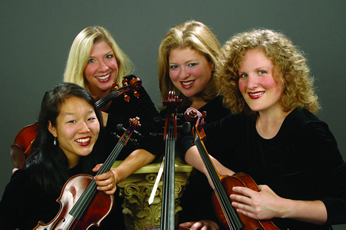Reflections: Reflective Piano Music from the Classical Repertoire (by Bach, Beethoven, Schubert, Chopin, Grieg, Liszt, Brahms, Debussy, Ravel and Satie) Greg McCallum, piano, plus Stanley Myers’ Cavatina and Duke Ellington’s Reflections in D. Privately published CD (73:20); available at North Carolina Crafts Gallery (Carrboro), Millennium Music (Durham), Quail Ridge Books and Music (Raleigh), or ordered directly from the artist (for $17 plus s/h). For more information or to order, email McCallumMusic@msn.com .
This outstanding collection of reflective piano music, compiled and performed by Carrboro-based Greg McCallum, one of the Triangle’s leading younger artists, presents some familiar fare in an atypical program originally intended to provide comfort and solace to a friend of the performer who was suffering from cancer. In this case, music proved salutary, as many other artists – including NC Symphony harpist Anita Burroughs-Price – have long known it can be. While engaged in making this CD last winter, McCallum played many of the selections it contains during a memorable New Year’s Eve concert, in which the music was supplemented with various readings and periods of silence for meditation. (He’ll offer another program of music and meditation for peace on December 31 – see our calendar for details.)
The works performed range from preludes and chorales by Bach and slow movements from Beethoven’s “Pathétique” and “Moonlight” sonatas to a Schubert impromptu, nocturnes by Chopin and Grieg, one of Liszt’s consolations and a serene intermezzo by Brahms. The French school is represented – radiantly – by Debussy’s “Rêverie,” Ravel’s “Pavane pour une infante défunte” and Satie’s “First Gymnopédie.” Myers’ Cavatina is the main theme of The Deer Hunter ; it fits ideally into the CD’s overall context. Ellington’s “Reflections” stems from a 1953 improvisation by the great American master that was transcribed by Alex Smith. Because it echoes music from his superb “Sacred Concerts” (parts of which have twice been presented at Duke University), it can – and does – serve as a perfect conclusion for a program that is presented in more-or-less chronological order. McCallum’s playing is marvelous. As we’ve noted with some frequency as we’ve heard him grow and develop as an artist, he is a superb technician with remarkable artistic sensibilities. Each work is a gem unto itself, and there is in the compilation a wonderful sense of unity.
It may be worth noting that this CD seems to offer much more than everyday piano recital recordings. McCallum advises that he has received testimonials from all over about how it has helped people – from doctors, massage therapists, and others – and that positive comments from health-care professionals have increased markedly since 9/11.
Few CDs come with notes that are as illuminating as those that accompany this one. They cover the music altogether admirably and relate the specific selections directly to the program with atypical skill. It should perhaps come as no real surprise that they are by the performer himself. The sound is absolutely first rate, thanks to Dwight Robinett’s superior recording and editing skills, and – to state the obvious – purchase of this CD will encourage McCallum to create more in the future.











